- Home
- Mary Wesley
Vacillations of Poppy Carew
Vacillations of Poppy Carew Read online
The Vacillations of Poppy Carew
Mary Wesley
Contents
1
2
3
4
5
6
7
8
9
10
11
12
13
14
15
16
17
18
19
20
21
22
23
24
25
26
27
28
29
30
31
32
33
34
35
36
37
38
39
40
41
42
43
44
45
46
47
48
49
About the Author
1
ON PARTING WITH EDMUND, Poppy Carew sank into a state of mind where physical need and emotion ceased as though she had been pole-axed. Instinct made her put foot before foot, directed the walk back to her flat, the insertion of key in lock, the closing of the door. Then she lay face-down on the bed, numb, tearless, cold; she did not even kick off her shoes.
Outside, lights came on in the street. London’s Saturday night expended itself and, later, the dilatory quiet of Sunday morning expanded into a foggy dawn.
Pride, that ambivalent quality, roused her at her usual hour. She changed into tracksuit and trainers, let herself out of the house and trotted, zombie-like, towards the park. As she ran she felt lightheaded from lack of sleep, lack of food and surfeit of emotion. Pride forced her to lope, through the streets of Paddington, across the Bayswater Road into the park. Habit led her padding feet towards the Serpentine, to turn right under the bridge as she usually did. It had not occurred to her that Edmund, also a creature of habit, would tryst his new girl exactly as he had trysted her years before, to meet and kiss in the shadow of the bridge, standing locked, their reflections wavering in the water a few feet away, broken by a passing duck, re-forming as they stood welded together by their fresh and enjoyable desire.
Poppy knew exactly what her successor felt like, knew the allure of the word ‘tryst’ as used by Edmund. She was tempted as she ran past to catch them off balance, with a vigorous push to join their watery reflection. She resisted the impulse, knowing she would stop, reach out her hand, heave them spluttering out, be forced to find something apt to say. I look silly enough as it is, she thought as they stood oblivious of her brief presence. She noticed the wind lift the sweep of hair Edmund combed across his thin patch, remembered suddenly the voice in the night telling her that her father was in hospital. The message thrust swiftly out of mind.
Her father was critically ill, shorthand for dying.
No longer jogging, she raced through the park, forgetting Edmund, knowing herself guilty of purposeful delay in case her father should enquire after Edmund, say ‘I told you so’. But I must allow him the last word, the pleasure of being right, it is the least I can do, she thought as she changed her clothes, checked whether she had money for the fare and took the tube to Paddington. The least, and I have never done much. Mixed feelings of resentment and love for her only parent superimposed themselves over grief and anger. She was in the unusual position, for her, of giving her father pleasure. It would make him well, cheer him up, put him in the mood to recover.
She bought a ticket.
But if I can get through this visit without telling him, I can think up something plausible later, she persuaded herself as the train drew out of the station: she felt she might be too raw and sensitive to aprise her parent of the parting.
Parting, she thought disgustedly as the train ran through the suburbs. To her mind, the act of parting was something that was mutual; there was nothing mutual about the parting with Edmund. He had left her.
2
THE WARD WAS A large one. Poppy had the impression of beds stretching to infinity, dwindling like the occupants’ lives. In each bed lay an old man, grey-faced, white-haired, merging with the white sheets, grey blankets, cream curtains. Some had limbs encased in plaster hoisted by pulleys at improbable angles. Some lay turned away like sad children. Some eyed her with watchful, hostile eyes. Many slept, open-mouthed, oblivious, showing pinkish-grey tongues, putty-coloured teeth. At the foot of a number of beds, a notice clipped to the rail, ‘NIL BY MOUTH’.
They had put her father in the geriatric ward.
‘Here’s your daughter to see you, Mr Carew. Isn’t that nice? Wake up, Mr Carew,’ said the nurse, bosomy in her white apron over grey dress, strong calves, useful shoes. ‘He sleeps a lot,’ she said to Poppy.
‘I was not asleep.’ Poppy’s father swivelled eyes which had been fixed on the ceiling. ‘Hullo, pet.’ His voice grey, shadowy, faded, matching the environment.
‘Dad.’ She bent to kiss his stubbled cheek, rough and dry. Why hadn’t they shaved him?
‘You may stay as long as you like,’ said the nurse, moving away, smoothing the sheet with a habitual hand as she did so.
‘I’ll get a chair.’ Poppy fetched an orange plastic chair from a stack by the ward door. She averted her gaze from the old men who followed her with their eyes. She felt embarrassed in her bright sweater and trousers. She put the chair by the bed, sat, took her father’s hand, cleared her throat, tried to speak.
‘What’s all this Nil by Mouth then?’ She mustered false cheer.
‘They are for the chop. Going to be carved up, patched up for a few months, sent home until next time.’
‘Dad.’ Tears pricked behind her eyes.
‘They stop you dying. It’s against the rules. No use carving me up.’ Speaking tired him.
‘Dad.’ Her nose hurt from suppressed tears.
‘I never cared much for rules.’ He was, he implied, beating the system.
‘Darling Dad.’ She held his hand, feeling it dry and illusive as it lay between hers. It was useless to deny the proximity of that which he had once jeeringly referred to as ‘The Great Combine Harvester’.
‘So, if there is anything you want to know or say,’ her father murmured, ‘now is the time. Now or …’ A new nurse appeared, held his wrist, popped a thermometer into his mouth, chopped off the word ‘never’.
Father and daughter’s eyes met, gleaming with shared amusement. The nurse shook the thermometer, made a note on the pad at the foot of the bed, moved to the next patient who burst, on her arrival, into a lament of condensed acrimony. The nurse popped the thermometer into his mouth. ‘Now then, Mr Prule.’ The lament ceased abruptly.
‘There’s one small thing I’ve never asked you.’ Poppy watched her father, how thin his face had become.
‘Yes?’
‘Why did you call me Poppy?’ A belated question; surely at a time like this there was something more pertinent.
‘Poppaea.’ He breathed the name.
‘I know, but you and everyone call me Poppy it’s so—’ Why worry about her stupid name now? She could not stop herself.
‘She bathed in asses’ milk; I was into the Romans just before you were born. I liked the idea. Then there was this horse. I bet on a double, The King of Love and Poppaea. Look them up in the stud book. Poppaea won the Oaks at twenty-five to one and The King of Love romped home at thirty to one. Bit of luck, eh? Then you came and we thought you beautiful, so Poppaea it was. All seemed to tie up. I was working as a milkman at that time. Your mother said nobody would ever spell it right and s
hortened it to Poppy which reminded her of a wallpaper she’d liked.’ He smiled faintly, pausing to catch his breath. ‘The other, The King of Love, if you’d been a boy she might have taken a bit more persuading, but she was content with the wallpaper. Not all that keen on horses your mother.’ He smiled remembering his wife.
Poppy watched her father. ‘I never knew you drove a milk float.’ She would resent her mother’s frivolity later. To be named for a glorious racehorse was acceptable but wallpaper took some swallowing.
‘A lot you don’t know about me.’ There was satisfaction in his faint voice. He rested eyes closed, his breathing an effort.
Watching him, she tried to visualise him young, vigorous, driving a United Dairies van, clinking bottles on to doorsteps in the early morning while fellow citizens lay still asleep or drowsing in their lovers’ arms as she and Edmund—Was her father asleep? His eyes were closed.
‘I’m awake.’
She tried again.
‘And you, Dad. Is there anything you want to tell me?’
‘Yes.’ His voice was weaker now.
She waited while he mustered his strength, his breath faintly whistling. Suddenly, the fingers, lying lax in her hand, clenched urgently.
‘Poppy?’
‘I’m here, darling.’ She leaned close holding his hand.
‘Something I never told you. Didn’t want it to influence you. Didn’t want that bastard chasing after you because of it …’
‘What?’ He was tiring, he was a horrible dark grey under the eyes. What sad secret did he feel he should tell her?
‘There’s a lot of money for you.’
‘Oh Dad, please.’ His savings would cover funeral expenses, and there was always her holiday money. ‘You mustn’t worry about …’ Her father frowned, tried to pull her closer as she leant towards him.
‘We mustn’t tire ourselves.’ The nurse was back, standing watchfully.
‘We’d like a cup of tea, wouldn’t we, Mr Carew?’
‘Bugger off.’ His voice suddenly came out strongly. The nurse moved away, unruffled.
‘How is that fellow Edmund, still nosing after you? Done a bit more than nose, hasn’t he?’ He was bitter now.
‘I … er … we …’ Surely Dad had not forgotten they lived together.
‘He’ll marry you for your money. Live off you, a sponger, a leech.’
‘But I have no money.’ Where was all that shredded pride?
‘Wait until you see my will.’
Poppy grinned at him. If that was her father’s idea of a joke, okay, she would string along with him. ‘Did you win the pools then?’ She tried to laugh, felt banal.
‘You could call it that.’ There was an expression on his face she had never seen.
‘You did not answer me about Edmund.’ Tenaciously he returned to his question, desperately his eyes pleaded. ‘Platt,’ he sneered at Edmund’s surname.
If I tell him I shall break down, she thought. If I cry I will upset him. Oh God, this is horrible. Why did I come? I could have pretended not to get the message, caught the later train.
Effortfully, her father was speaking again. ‘Get that fiend to prop me up.’
‘The nurse?’
‘Who else?’
Poppy signalled. Two nurses came, heaved her father up. Punched pillows, propped him up like some dreadful baby. One of them smoothed his hair with a possessive but offhand gesture. All about the ward, nurses tidied patients whose relatives and friends came bustling in with flowers, sweets, fruit, letters, books, get-well cards. Visiting hour, with its bonhomie, had begun, time to hide the bedpans.
‘There’s a fellow advertising in the Field.’
She leant close to hear. ‘Yes?’ This position was making her back ache.
‘Furnival’s Fun Funerals. You’ll see, I’ve marked it.’
‘Furnival’s Fun Funerals?’
‘Yes.’ Her father’s voice was fainter now. ‘I want one. Horse hearse, plumes, mutes, the lot, I want one. Something to look forward to. Think you could organise that?’
‘I’ll have a bash.’ Why have I never given him what he wanted while he was alive? she mourned.
‘Pricey.’
‘That won’t matter if you are so rich.’ Her voice sounded jocose.
‘So what’s happened to Edmund?’ He was back on the track, remorseless. ‘Platt.’ His voice a hoarse whisper.
‘He’s found a rich divorcée. Very pretty. He’s chucked me, Dad. He’s going to marry her.’ There it is, out, like a bad tooth: I am giving him all he wants. Giving him my unbearable hurt and pain. Giving him something he wants while he’s alive to enjoy it. Her eyes swam with angry tears, she hated her father.
‘Oh, ho, ho, ho! How lovely! Ouch!’ Bob Carew let out a rattling shout. His head fell to one side and his hand lay, lifeless, in Poppy’s. He dribbled.
A nurse came up with a rustle and a swish, rattled the curtain round the bed with one hand, felt for the non-existent pulse with the other, frowned at Poppy. ‘Look what you’ve done,’ she hissed. ‘He should have lasted until after visiting hour.’
‘That will do, nurse.’ The ward sister stood now beside Poppy, who looked at her father with wonder.
‘Is he dead?’ He died laughing, she thought with satisfaction, at least I gave him that.
‘Yes, dear.’
‘Don’t you dare call me dear,’ Poppy shouted at the ward sister. ‘I am not your dear. I will not be called dear by you.’ She began to cry loudly, messily, unrestrainedly, her breath coming in angry hiccups. She bent to kiss the dead face, her tears dripping into its open mouth. ‘He wanted me to have this.’ She snatched at a copy of the Field topping a stack of magazines on the locker by the bed. ‘Wasn’t it wonderful that he died laughing?’ She shouted, ‘Wasn’t it marvellous? I made him die laughing.’ She stood by her father’s bed, staring at the ward sister until tears blinded her.
‘You’ll upset my other patients.’ Sister had Poppy by the arm, was leading her towards the door.
‘They are not upset. They are loving it. They are still alive,’ Poppy shouted.
An old man, destined for the operating theatre (Nil by Mouth) made a thumbs-up sign as the sister pushed Poppy towards the swing doors into the corridor.
‘Nurse, bring Miss Carew a cup of tea in my office.’
‘I don’t want your fucking tea,’ Poppy yelled.
‘Good on you,’ croaked another old man.
The sister pushed Poppy into her office, forced her down on to a chair.
‘Shut up,’ she said. ‘Be quiet.’
Poppy sat. ‘I think I’m going to be sick,’ she said in her normal voice.
3
AT ABOUT THE TIME Bob Carew was dying, Willy Guthrie was crossing the Park to lunch with an old cousin who had offered to buy from him a house he had inherited from his mother who had died the previous year. The capital realised would enormously help the expansion of his present enterprise, relieve him of worry.
As he walked Willy compared the faded London grass with the sweet-smelling turf on his farm and looked forward to the day’s end which would find him back home breathing country smells instead of petrol fumes, hearing country sounds instead of London’s roar. He was a contented man, free—here Willy crossed his fingers—of emotional entanglements, happy with the life he had chosen to lead. Looking down his long Scottish nose at the citizens of London taking their lunchtime break in the park, Willy pitied them and marvelled that he had endured several years of city slog before opting for self-employment and the challenge of running a farm. He felt no regret for the large salary and safe prospects he had chucked in favour of agriculture and was even glad that his present profession was more robust and risky than the lyrical idyll he had falsely imagined it to be when he started. Even his ulcers, should he get them, would be, he felt, of a healthier sort than those of Lombard Street aficionadoes.
His cousin was waiting for him in the bar of his club, a double gin at his elbow.
>
‘You look very well,’ he said resentfully, eyeing Willy’s sunbrowned face, taking Willy’s hard, brown hand in his pale city paw.
‘What will you drink?’
‘Vodka.’ Willy subsided into a chair beside the old man who thought Willy horribly tall and healthy and that his dark eyes and springy hair made him look a gypsy in this discreet rather academic environment.
‘This is rather an academic club,’ said the cousin hoping to make Willy feel bucolic. It was important to assume the upper hand, he lived in London and was of the opinion that people who lived in the country were less sharp than those in the capital.
‘I wouldn’t have guessed,’ said Willy grinning at his cousin who remembered rather belatedly that Willy’s degree at university had been rather good whereas he in his day had gone down before taking his finals.
‘You have your mother’s eyes,’ said the old man uneasily. ‘Shall we go in to lunch and discuss her house, yours now of course. I had a soft spot for your mother.’
First I’ve heard of it, thought Willy following his host into the dining room and it certainly was not reciprocated. Too late he wondered why he had let himself in for this meeting.
An old waitress handed him the menu.
‘The Irish stew is good today,’ she said persuasively.
To please her—she looked weary—Willy agreed to the stew.
‘The food in this club is disgusting,’ said the cousin, ‘but it’s cheap.’
Willy, who during his banking period had had occasion to learn his cousin’s income and assets, stiffened at this parsimonious remark.
‘Why do you want to buy my mother’s house?’ he asked, leaping to the point of the meeting without preamble.
His cousin flushed. He had prepared what he thought of as his orderly mind for other tactics, a long build up to confuse, ending with an astute offer the country bumpkin Willy would be grateful to accept.
Willy looked round the room while awaiting the Irish stew, listening with half an ear to his cousin who, deciding to ignore Willy’s verbal jolt, set off along the route he had plotted.
The stew arrived.
To please the waitress Willy ate but asked for extra bread to sop up the watery gravy, refused wine, asked for lager. He did not wish to linger longer than the minimum time to register tolerable manners. There was an earlier train than the one he had planned to take. If he was nippy he could catch it.

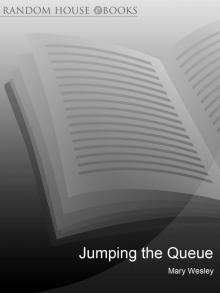 Jumping the Queue
Jumping the Queue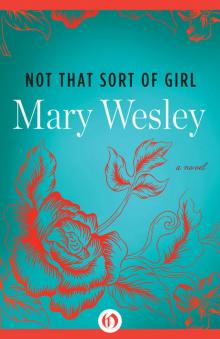 Not That Sort of Girl
Not That Sort of Girl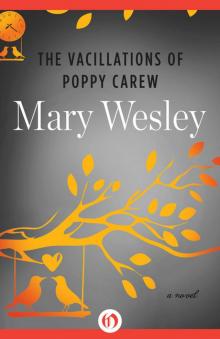 Vacillations of Poppy Carew
Vacillations of Poppy Carew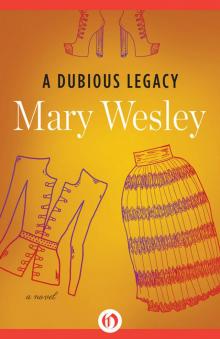 Dubious Legacy
Dubious Legacy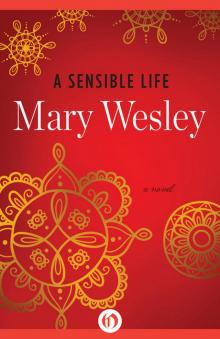 Sensible Life
Sensible Life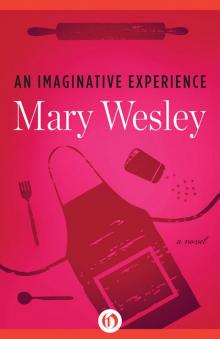 Imaginative Experience
Imaginative Experience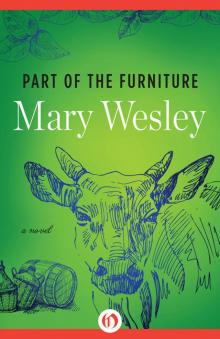 Part of the Furniture
Part of the Furniture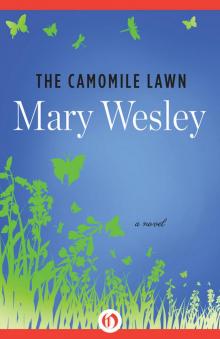 Camomile Lawn
Camomile Lawn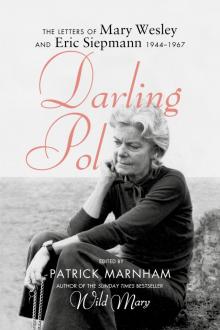 Darling Pol
Darling Pol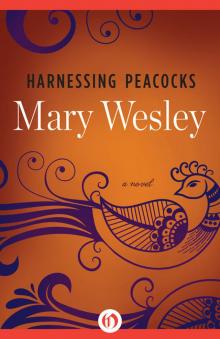 Harnessing Peacocks
Harnessing Peacocks